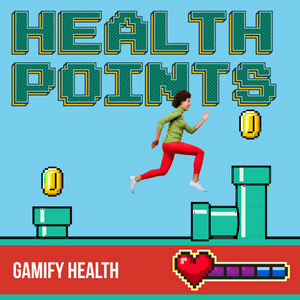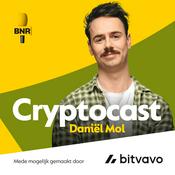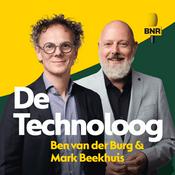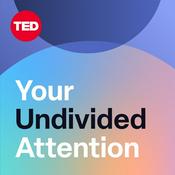48 afleveringen
- Roll on Episode 12!
We’re joined by Joke Veltman, to explore their work and game development for musical and audio training. Joke is a PhD candidate at IQ Health academic center and creator of the Melody Game for Music Training for Cochlear Implant Users. A professional pianist by background, due to a genetic defect, Joke gradually lost her hearing and eventually needed a cochlear implant herself.
In this episode, we explore:
The development of a musical training listening approach, including 1) Habituation, 2) Auditory memory, 3) Attention, and 4) Step-by-step pitch discrimination.
The co-creating and development process of the Melody Game and the game mechanics are integrated into the delivery.
Key lessons for health game designers in the importance of defined goals, team, iteration, and understanding users deeply, especially their emotional barriers and enablers, and to accept that programming requires precision, even when the subject matter (music) is fluid.
Melody Game - https://musi-ci.com/
Research Publication - https://pubmed.ncbi.nlm.nih.gov/37697865/ S3E11: Cyrus Nemati<> Vampire Therapists for Self-Reflection on Cognitive Distortions
13-8-2025 | 30 Min.We're rolling on to episode 11!
And joining us is Cyrus Nemati!
Founder and Creative Director of Little Bat Games, Cyrus wrote, directed and programmed Vampire Therapist, a fully-voiced narrative comedy game about finding purpose when death isn’t a concern. A BAFTA-nominated game and winner of multiple other awards this year already.
In this episode, we explore:
The journey from political policy to voice acting, games studios, and Cyrus setting up his studio, Little Bat Games
Vampire Therapist: exploring and learning through a therapeutic process, providing the player the ability to take more of a 3rd person perspective on therapy, and the opportunities to learn about cognitive distortions (with humour and side games included), which can aid in real-life cognitive and emotional reflections and processing.
A key learning: knowing what the final game looks like before starting the production to work within your resources and limits, because this can lead to creating a multi-award-winning game
Show notes:
https://vampiretherapist.com/
Game download: https://store.steampowered.com/app/2481020/Vampire_Therapist/S3E10: Stephen McPeake<> Geo-located Digital Dollars for Gamified Community Activation
30-7-2025 | 41 Min.We've made it to episode 10!
We’re joined by Stephen McPeake
Stephen has been working in the technology industry for 25 years, spending the last 10 focusing on 'Smart Cities' solutions and citizen engagement technology, including the ReportAll app and in the last few years, founding Civic Dollars.
In this episode, we explore:
Stephen's journey that started with working to solve the problems facing cities in promoting health & wellbeing, which led to the idea for Civic Dollars to incentivise activity in outdoor spaces.
The importance of creating the right incentives for each demographic: it’s ‘local rewards for local people’ (and seasonal rewards too).
The opportunity to lean into effective altruism, creating deeper motivations for players through donating their civic dollars to local communities.
Civic Dollars is a great example of how digital gamification can translate into real-life social activities, creating new social connections and overcoming loneliness.
Show notes:
https://www.civicdollars.com/
Civic Dollars Christmas Tea Dance https://www.youtube.com/watch?v=pbfVRqaQc0U- Rolling on to Episode 9!
We’re joined by Cosima Prahm
Cosima is Director of Centre for Clinical Research at Unfallkrankenhaus Trauma Hospital Berlin and post-doc chariotey, the Medical University of Berlin. She is a clinical neuroscientist with a background of research in plastic and reconstructive surgery relating to extremity reconstruction, prosthetic training, peripheral nerves, phantom limb pain and human machine interfaces. She founded the PlayBionic working group in 2017, which has led to applications for myoelectric signal training, immersive environments for phantom pain relief and more. Winner of multiple awards, including from Games for Change.
In this episode we explore:
Learning from existing games on the market, and adapting the controls to enable people living with amputations to engage in the gameplay
Building on this through listening and co-creating games with patients living with amputations and trauma, which has led to therapeutic benefits of game play.
For players in your games who have had traumatic hand injuries, the distraction of the gameplay, means that patients are reducing their pain experience, and importantly, pushing the boundaries of their movement and functional therapy to recover earlier.
The importance of making games outrageous and weird to create player desire and interest.
The challenges of taking digital games as therapeutics beyond research studies into products and services available in clinical and residential settings – and something, as game designers and implementors, we need to collectively drive forward.
Show notes:
https://playbionic.org/about-us/
https://pubmed.ncbi.nlm.nih.gov/30503232/
https://games.jmir.org/2017/1/e3/ - We’ve arrived at Episode 8!
We’re joined by Luca Contato
Luca founded Rising Pixel in 2012, and since then, he and his team have created over 200 games with cumulatively millions of plays per week.
In this episode we explore:
Rising Pixel’s learnings from developing over 200 games with millions of plays each week and your insights on the important elements when developing gamified health, educational and accessible games.
And for games to be effective, that plays must feel the meaning in the game, and be motivated by a games purpose, and that a good game, is one that has strong channels to reach it’s intended audience of players, because it’s not just about developing the most effective game, it’s having the most visible game to the greater number of players, that delivers the greater impact.
Show note links:
https://www.consilium.europa.eu/en/infographics/disability-eu-facts-figures/
https://www.who.int/publications/i/item/9789240063600
https://conference.digitaldragons.pl/speakers/luca-contato/
https://embed-project.eu/
https://www.risingpixel.com/portfolio/inquisitors-heartbeat/
https://ian-hamilton.com/blog/
https://www.youtube.com/watch?v=GHN5v3NJ9ko
https://gameaccessibilityguidelines.com/basic/
Meer Technologie podcasts
Trending Technologie -podcasts
Over Health Points : Health Gamification
Speaking with leading thinkers, designers, researchers and business leaders in gamification & health
Podcast websiteLuister naar Health Points : Health Gamification, AI Report en vele andere podcasts van over de hele wereld met de radio.net-app

Ontvang de gratis radio.net app
- Zenders en podcasts om te bookmarken
- Streamen via Wi-Fi of Bluetooth
- Ondersteunt Carplay & Android Auto
- Veel andere app-functies
Ontvang de gratis radio.net app
- Zenders en podcasts om te bookmarken
- Streamen via Wi-Fi of Bluetooth
- Ondersteunt Carplay & Android Auto
- Veel andere app-functies


Health Points : Health Gamification
Scan de code,
download de app,
luisteren.
download de app,
luisteren.







































